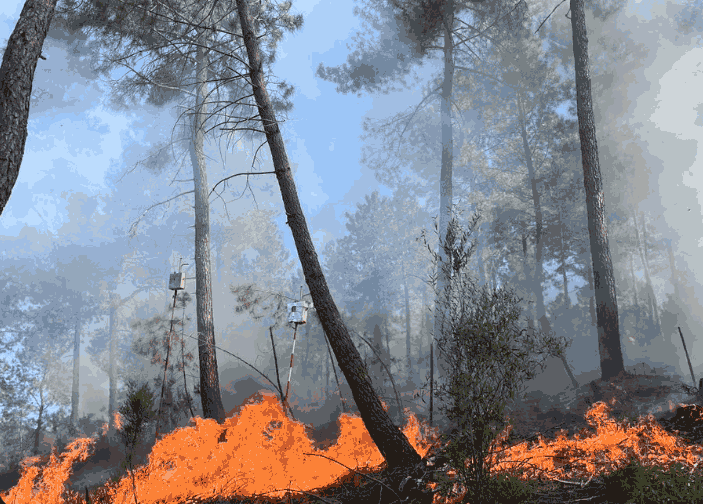Emblematic cross-border fire fighting project takes pride of place to mark Cooperation Day.
Fighting fires together brings Portugal and Spain closer
- 15 October 2024

Forest fires count as one of the most significant natural disaster risks facing our continent. FIREPOCTEP+ brought together experts from both Spain and Portugal, who share the European Union’s oldest and longest border, as part of Interreg Cooperation Day with the aim of strengthening cross-border cooperation to combat fires that have ravaged forests on the Iberian peninsula.
It is estimated that fires have destroyed almost 60,000 hectares of forest in Spain and Portugal in 2024. While this level of destruction, albeit serious, is significantly lower than in previous years –300,000 hectares of forest were destroyed in Spain in 2022 and 500,000 hectares of forest were destroyed in Portugal in 2017 – it is accepted that prevention and cooperation are key to combating the dangers posed by forest fires.
FIREPOCTEP+ has been designated as an Operation of Strategic Importance by the Monitoring Committee of the Interreg VI-A Spain-Portugal (POCTEP) 2021-2027 Operational Programme. It is widely accepted that FIREPOCTEP+ will lead to an unparalleled level of cooperation between Portugal and Spain.
One of the key pillars of FIREPOCTEP+ is the coming together of both public and private stakeholders. FIREPOCTEP+ represents a close alliance of 7 public administrations and 5 universities. The total budget of the project is indicatively set at 3.322.468,75€, ERDF: 2.491.850,56€.
The motto adopted by POCTEP+ ‘Sowing Preventive Intelligence’ sums up its proactive approach to forest management. The project seeks to implement preventive measures and share knowledge and technologies between the cross-border regions. The focus is not so much on mitigating fires, but rather on developing sustainable solutions for the preservation of the environment and the revitalization of affected rural areas.
